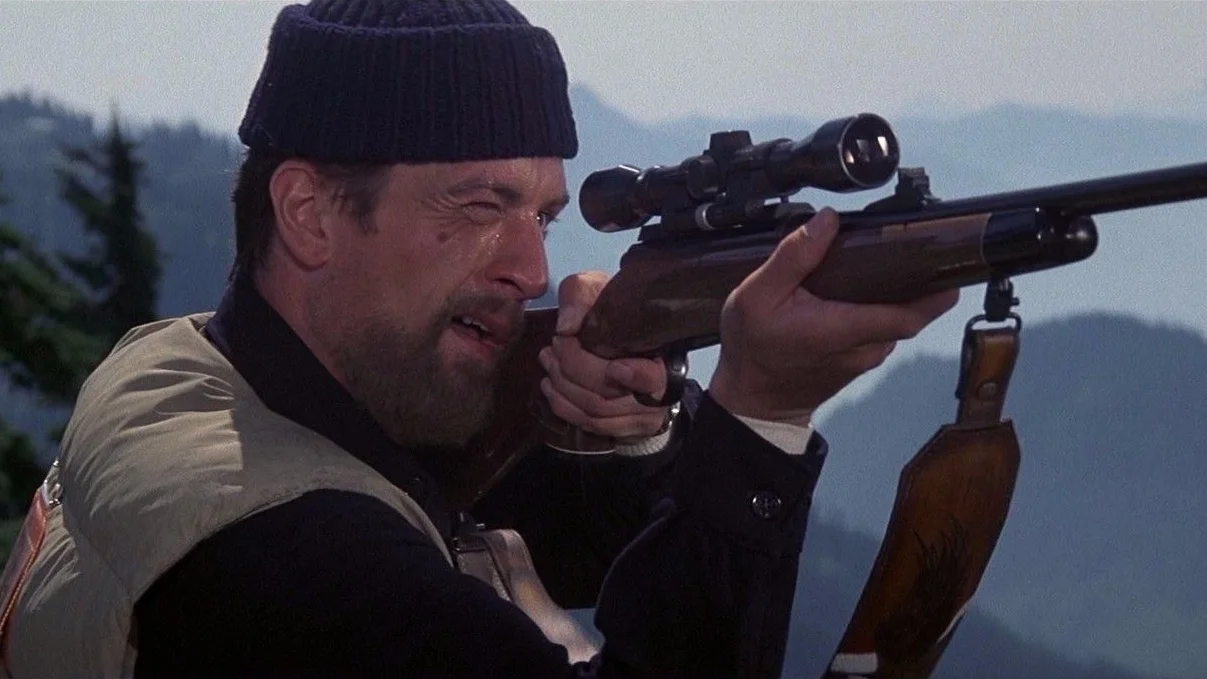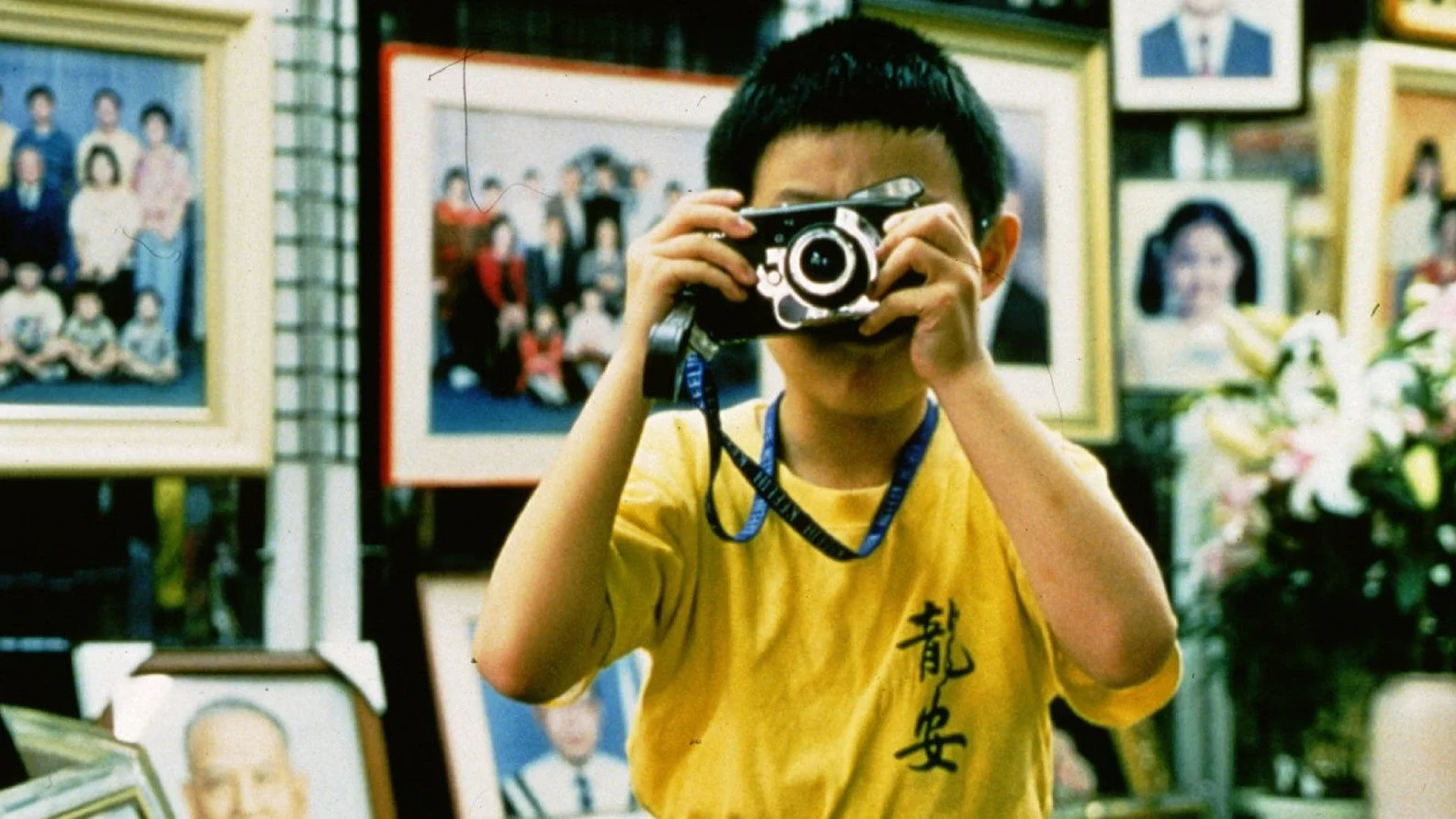Losing My Religion: The Deer Hunter
Every Friday during Lent, we’ll be looking at a different movie from a Catholic (or at least, Catholic-raised) director, and how their religious upbringing influenced the film in question. Each movie has at its core that most Catholic of all sentiments: heaping loads of internalized guilt. For this seventh and final Friday of Lent, we’re looking into Michael Cimino’s The Deer Hunter. As of this writing, it is currently available to stream and rent.
It’s the 1960s in the Steel Belt of Pennsylvania, before it became the Rust Belt. The young men of Clairton all work together at the local steel mill, as it’s the biggest employer in town. When not at work, they pal around in beat up old cars, go drinking, and hunt deer in the mountains outside of town.
Stevie (John Savage) is getting married to an already-pregnant Angela (Rutanya Alda), and it’s heavily implied after the wedding/going away to war party that it wasn’t Stevie who got her pregnant, but Michael (Robert De Niro). Cimino’s film The Deer Hunter lingers in the quieter moments, or even just long stretches without scripted dialogue, to let us get to know the young men of Clairton as though we’re just other guests at Stevie’s wedding. Cimino spends a great lot of time on the ceremony and ritual involved in the wedding, putting the Eastern/Russian Orthodox Catholic traditions on display for the viewer. The obligatory nature of the wedding itself, hangs over the proceedings like a cloud. There’s joy and celebration, to be sure, as weddings usually have on display in spades. But nearly everyone involved knows exactly why the wedding is happening the way that it is.
Which explains why Michael, upon leaving the wedding, strips off every trapping of the wedding and streaks through town while drunk. The best man from the wedding, Nick (Christopher Walken) chases down his drunken and nude friend, and they have a heart-to-heart about just how lost they feel in their lives and how the pace of those lives is picking up beyond what they’re prepared for.
The wedding was also a going away party, though, because Michael, Nick and Stevie have enlisted to join the Vietnam War. In an exchange that foreshadows much of Michael’s character and his motivations for later in the story, Nick pleads with him that no matter what happens, “just don’t leave me over there.”
So, it stings that much more for Michael, Nick and the audience when that’s exactly what happens. The three are seasoned and jaded by combat in Vietnam, and after meeting back up following a raid on a local village, they are captured by the Viet Cong. Michael takes on the part of the heart of their group of friends, keeping the others mentally as well as physically together amidst a level of torture that brought the film a not-insignificant amount of criticism upon release. The Viet Cong in this story force the American POWs to play Russian roulette for their entertainment, beating them when they refuse. It’s especially an offense to the Russian Orthodox-raised protagonists, as suicide is considered an unforgiveable sin in the church’s doctrine.
Through sheer luck, the three survive long enough for Michael to devise an escape plan: he goads their captors to load extra bullets into the revolver, and talks Nick into making an attempt. The two manage to liberate Stevie from the tiger cage in which he’s imprisoned, and they make a break for it on a log down the winding river near their makeshift prison.
But in being rescued by helicopter, the three are separated. Michael, being the only one of the three to make it back to Clairton entirely able, carries the guilt of what he had to do to survive, what he couldn’t do for Nick, and what Stevie can’t do (he’s lost the use of several of his limbs in large part because of the conditions he was held in), with him everywhere he goes. Michael also carries with him the guilt of what he forced Nick to do in order to make their escape possible—Nick was the loudest in opposition to playing along with the game while in captivity, and playing it clearly broke something in him. While in an army hospital before being allowed to go home, Nick breaks down at the very mention of his own name—what he’s done weighing on him so heavily that he can’t even identify as himself any longer. His dissociation is so strong that even after returning home, he turns around goes back to Vietnam, picking up underground gambling to pay his way around.
Michael’s got his own issues once arriving home—he skips the hero’s welcome his friends throw for him, clearly not feeling worthy of it. Nick’s girlfriend Linda (Meryl Streep) has shown overt interest in Michael as Nick’s returned and left again.
Michael, knowing he made a promise to never leave Nick “over there,” returns himself, to bring his friend home. Finally coming across the underground gambling den where Nick makes his money, he finds out what Nick’s game of choice is: Russian roulette. The ultimate perversion of everything the Russian Orthodox boys are or were before they left for the war, Nick has turned to exactly what broke him in the first place to find some semblance of peace or purpose. Michael pleads with him to put down the gun, give back the bets and come home. Nick first seeks to offend Michael, to push him away with how brazenly not-Nick he’s acting. Michael doesn’t take the bait, so Nick instead sits down for his round of roulette. Michael sits across from him, determined to break through, even if it means playing the torturous game one more time.
Michael’s chamber hammers empty. A look of relief and renewed concern for Nick comes across his face.
In a last-ditch effort, Michael reminds Nick of the ethos of the deer hunt to which he held their entire group of friends: “One shot.” But Nick takes it for a different meaning, now that he’s been pushed further than Michael can help him with. There’s a moment of recognition, of near-serenity in Nick’s eyes as he levels the revolver to his own temple and pulls the trigger.
Nick’s chamber was loaded.
Michael’s greatest showing of emotion comes here, as the lifeless body of his friend falls to the floor of the seedy gambling den. He did all that he could, more than most probably would have, and it wasn’t enough.
Carrying both Nick’s body and the weight of his death upon his conscience, Michael attends the funeral and post-burial repast at their local watering hole. Linda leads a sorrowful group rendition of “God Bless America,” all in attendance lamenting the last few years of their lives.
Losing My Religion has thusly ended. Happy Easter everybody, and meat’s back on the menu as of next Friday!








